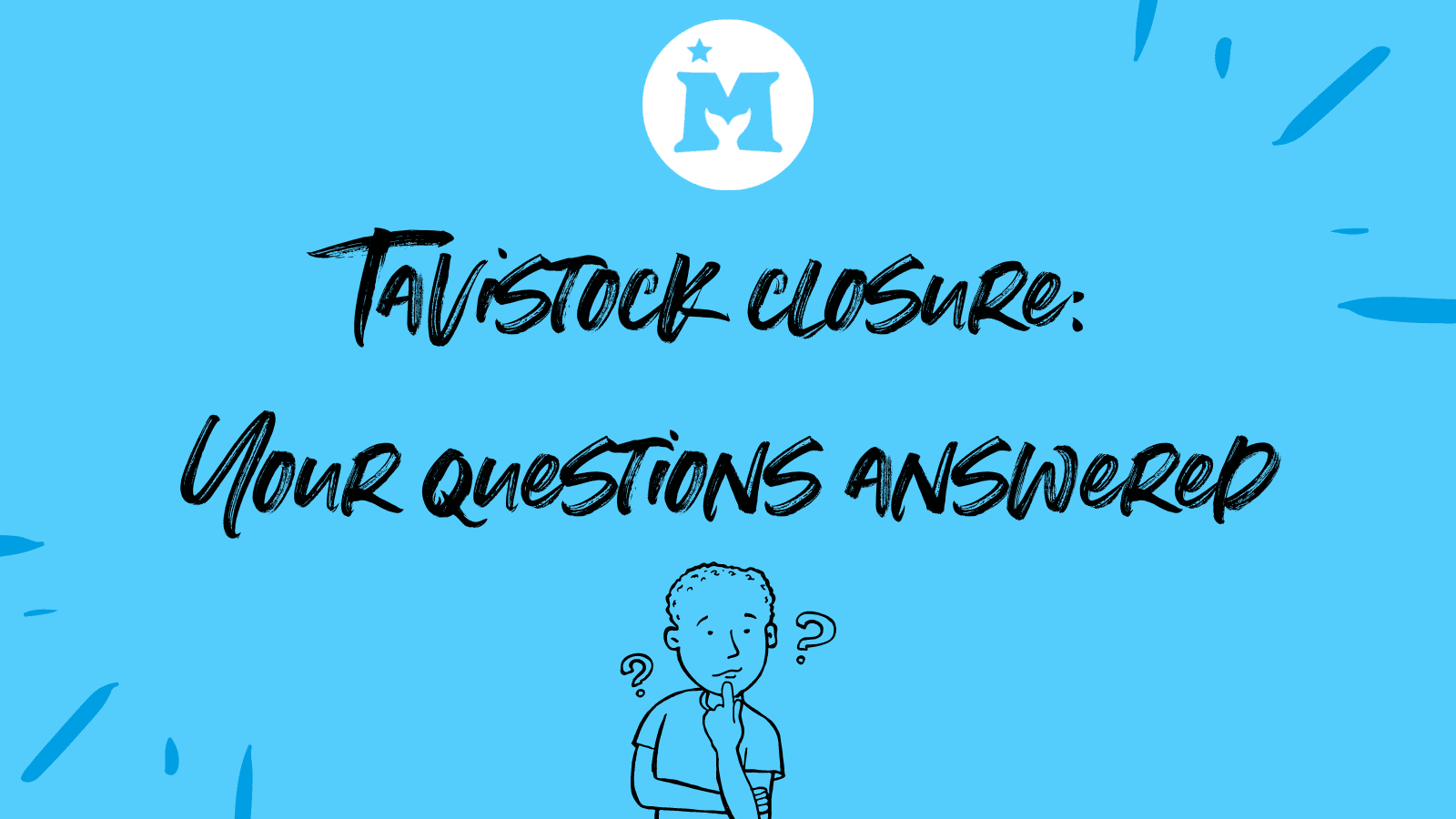
NHS Tavistock and Portman’s Gender Identity Development Service (GIDS), England’s sole provider of gender identity health services for children and young people, is closing its doors in Spring 2023. What does it mean for those currently accessing treatment, or on the waiting list to do so? We answer your questions…
Yesterday we heard some big news: England’s gender health services are set to expand, and those who are currently GIDS patients or on the waiting lists will transfer to the new service without additional delays.
If you had the unfortunate experience of reading misleading news headlines that “Tavistock is being shut down”, you might have felt fearful for the future gender-related healthcare for young people. So we are here to help try to break down the announcement, and reassure you that this might be, overall, quite good news!
What’s happened?
On Thursday 28 July, NHS England announced that the current sole provider of gender identity health services for children and young people in England, NHS Tavistock and Portman’s Gender Identity Development Service (known by many simply as the Tavistock or GIDS), will be replaced in Spring 2023 by two regional centres – one in London, and another in the North West.
This news follows recommendations from Dr. Cass’ independent review of these services, which recognised – as we have for decades – that the current GIDS service is not up to scratch to cope with growing demand, and there is a need for better all-round care.
Once these two “Early Adopter” centres are up and running, the plan is for NHS England to expand the sites across the country, suggesting up to eight in total.
Dr. Cass seems to be unconvinced that there is enough evidence on the use of puberty blockers to be sure of how and when to prescribe them. NHS England will therefore start a “research protocol” where anyone prescribed puberty blockers will also be part of a long-term study to build this evidence base.
What does this change?
In the short term – nothing. Anyone waiting to be seen by GIDS, or currently a patient with them, will continue to be so, with no additional delays, according to NHS England. Blockers and hormones can still be prescribed as usual.
Anyone waiting to be seen by GIDS, or currently a patient with them, will continue to be so, with no additional delays”
In the long term, we’re hopeful that we might finally be seeing the start of the root and branch system change we have long been calling for. Including: services closer to where you live, shorter waiting times because there are more people and services, and more consistency in treatment across the country.
What are the pros and cons?
From what Dr. Cass has proposed, we are cautiously optimistic of the benefits this model could bring, including:
- More capacity in gender healthcare services, meaning shorter waiting times (currently at two and a half years for a first appointment)
- Regional services throughout England, which will bring support closer to home
- A more holistic approach to care, connecting different local services through a shared care model, rather than expecting patients to connect the dots across different types of medical support
- The outlined approach to care addresses key issues we’ve raised continuously, including: support for those on the waiting list, a diversity of pathways recognising each person has different needs and desires, and embedding support from the third sector
- A national network to build capacity, understanding and best practice across the regional services should help bring more consistency across services.
We welcome the news that NHS England plan to provide a more resilient and robust gender identity service in 2023 by expanding provision and improving the quality of care received by trans, non-binary and gender diverse young people 🧵⬇️
— Mermaids (@Mermaids_Gender) July 28, 2022
Of course, it’s not all good news, and we do still have some concerns. We will need to wait for the details on some parts, especially in making sure the transfer to new services doesn’t leave anyone worse off.
We are also not happy with the potential idea that anyone accessing puberty blockers must be part of long-term research – we think there needs to be an opt-out option as no one should be required to be studied in order to access healthcare.
What does this mean for gender identity services in the rest of the UK?
It’s important to remember the Cass Review, and these proposed changes, are specific to NHS England, so services in Scotland, Wales and Northern Ireland will not be directly impacted.
What happens now?
As always, we will advocate for the needs of trans, gender-diverse and non-binary children and young people and their families throughout this process. Trans people and their families must be involved throughout, and waiting lists must not lengthen because of these proposals.
We will engage meaningfully with policy-makers in this area, centring the voices of our communities, and will continue to fight for what we need to fix this broken system.
If you’ve got more questions about what this news means for you or your young person, please contact our helpline team on 0808 801 0400 or email [email protected].
